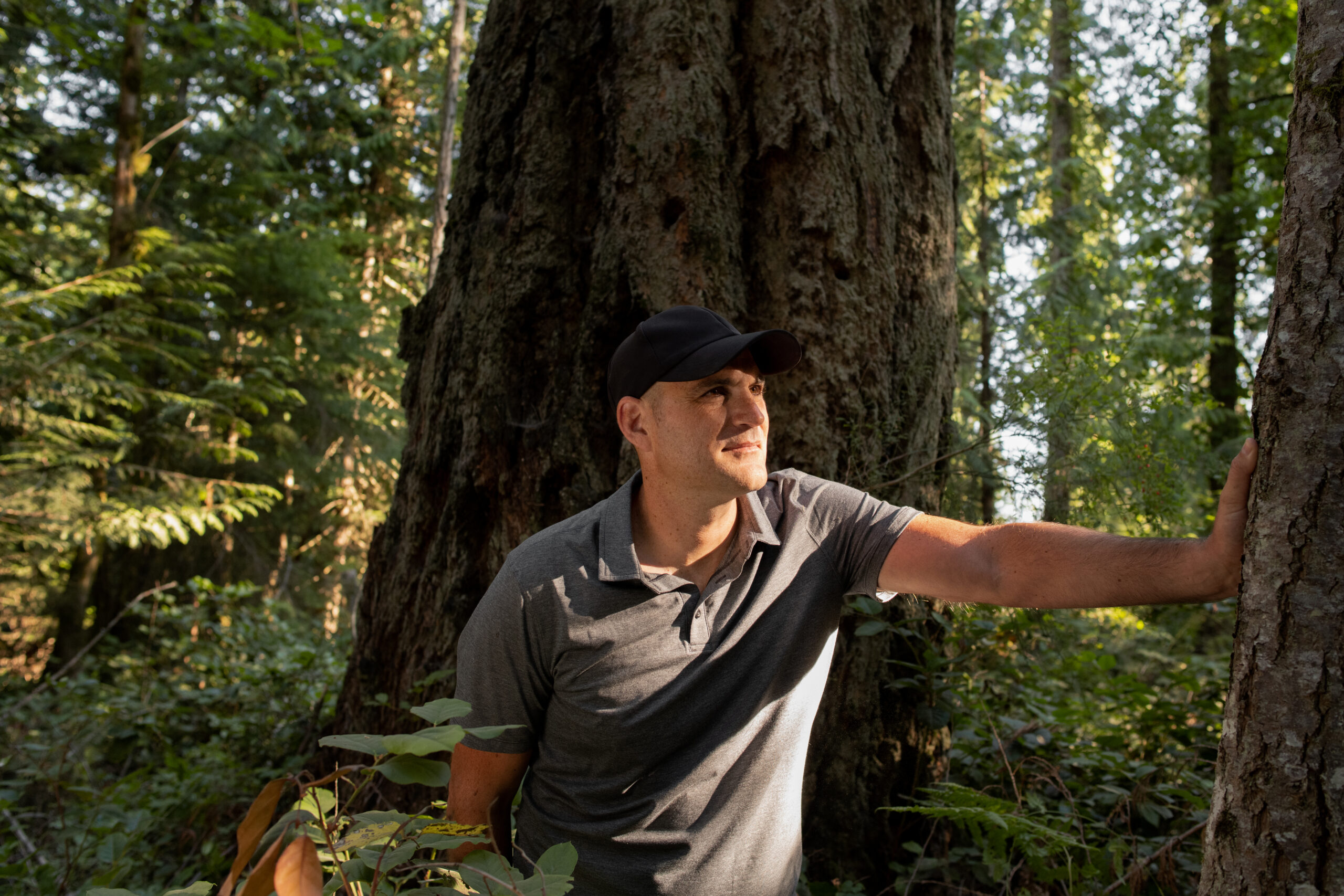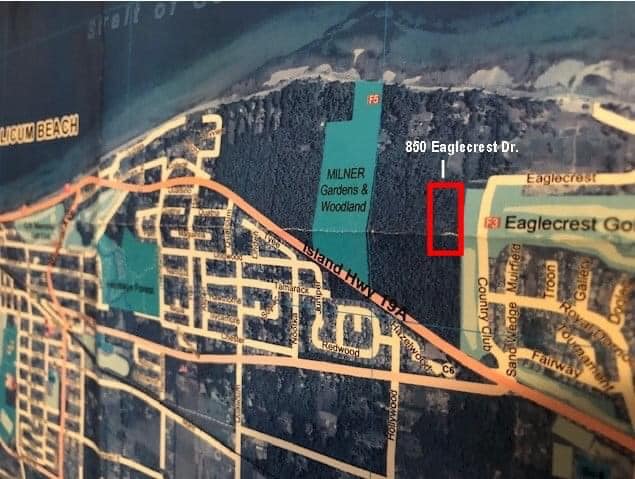
Bill 15: this ‘blank cheque’ legislation could dramatically change how B.C. approves major projects
Premier David Eby says new legislation won’t degrade environmental protections or Indigenous Rights. Critics warn...
A B.C. environmental group that tested a provincial law intended to protect freedom of speech and prevent frivolous lawsuits from bogging down the courts has won.
On Monday, the B.C. Supreme Court dismissed a defamation lawsuit filed by a developer against the Qualicum Nature Preservation Society and its president Ezra Morse, ruling that the case did not have substantial merit. The case was a test of B.C.’s new Protection of Public Participation Act, intended to prevent strategic lawsuits against public participation (often referred to as SLAPP suits), which can be used by companies to silence and out-resource opponents.
While the law has been tested a handful of times, this may be the first time it was used to defend an environmentalist against defamation claims arising from land-use disputes, according to Morse’s counsel, Chris Tollefson.
“This has shown this legislation works. It can provide protection for people who are engaged in lawful, democratic expression,” Tollefson said in an interview.
In May 2021, Richard Todsen and Linda Todsen, owners of Todsen Design and Construction, filed a claim alleging Morse was misleading in his outspoken advocacy against the project and damaged their company’s reputation. In the court decision, Justice Jan Brongers concluded that statements made by Morse and the Qualicum Nature Preservation Society were an “expression on a matter of public interest” and they had a viable defence to the defamation allegations.
Tollefson, of the Tollefson Law Corporation and founder of the Pacific Centre for Environmental Law and Litigation, filed a motion to dismiss the claim in July 2021 utilizing the public participation act, colloquially referred to as an anti-SLAPP law.
Under B.C.’s Protection of Public Participation Act, Brongers concluded the Todsens’ claim was “a type of SLAPP proceeding that the Act prohibits.”
“While the Todsens are free to take issue with Mr. Morse’s comments … the [Protection of Public Participation] Act precludes them from doing so through the vehicle of a defamation claim,” Brongers’ decision reads.
“My client is very happy and relieved about this decision,” Tollefson said.
Morse told The Narwhal he hopes the decision encourages others in B.C. to “speak up for their values.”
“Every citizen in British Columbia won today,” he said.

The judge found most statements made by Morse could be viably defended as “fair comment,” meaning they were in the public interest, based on fact and recognizable as an opinion that someone may reasonably and honestly have.
Richard Todsen told The Narwhal he would not be providing comment until having further discussions with his counsel, who did not respond in time to comment for this story.
The story unfolded in Qualicum Beach, a town on the east coast of Vancouver Island. Like many places, Qualicum Beach is embroiled in debates about the best path forward to address housing, conservation, the climate crisis and the community’s needs — which contributed to the tension around the Todsens’ development proposal.
The Todsens allege Morse and the preservation society made defamatory statements online in opposition to their proposal to build a 16-lot subdivision in the town’s greenbelt.
Using the anti-SLAPP law, which was passed unanimously in 2019, Tollefson applied to have the claim dismissed and also countersue the Todsens for damages. The anti-SLAPP law outlines that a plaintiff may be sued for damages if they acted in bad faith to intimidate or inflict harm on the defendant.
But Brongers concluded the Todsens did not act in bad faith and that Morse was not entitled to damages.
“Just as I did not find that Mr. Morse was actuated by malice when he expressed his opinions, I can see no basis for a finding that the Todsens were actuated by malice when they responded with their claim,” reads Brongers’ decision.
“Rather, the situation here is fundamentally one where two parties have strong opposing views about the merits of a proposed land development and its potential impact on the environment.”
The significant outstanding question remains of whether the Todsens will be required to cover the defendants’ legal costs. Both sides are expected to try to reach an agreement on costs, and if they cannot agree, they are required to provide submissions to the Supreme Court, which will issue a decision.
The anti-SLAPP law outlines that if a case is dismissed under the act, the applicant (in this case, Morse and the preservation society) is “entitled to costs” unless the court decides that is “inappropriate in the circumstances.”
The anti-SLAPP law requires that if a lawsuit targets a person who is lawfully expressing themselves on a matter of public interest, the onus is on the plaintiff to show the court their case still has substantial merit and should be allowed to proceed.
Under the public participation act, the plaintiff must pass three steps: 1) prove their case has substantial merit; 2) prove the defendant has no valid defence and 3) demonstrate the harm they suffered outweighs the public interest of protecting the defendant’s expression.
If the plaintiff can’t meet this onus, the courts are “basically bound by the law to dismiss the case,” Tollefson told The Narwhal.
Brongers found in each of the Todsens’ 24 allegations, they failed on one or more of the three steps.
The Protection of Public Participation Act was unanimously passed in 2019 and designed to protect free speech from intimidation lawsuits. Ontario, Quebec and B.C. are the only provinces in Canada with anti-SLAPP laws.
“We want to protect the interest of the journalist who’s breaking that big story, of the community member who’s going out to speak out about a problem that they’re seeing in their community, of the activist who’s saying something about the pollution that’s coming from the factory,” Attorney General David Eby told CBC in 2019 when the law was passed.
“In this rough and tumble public debate on the issues of the day we don’t want people to feel like they have to be too dainty about it, because they’re worried they’re going to get sued.”

SLAPP suits can have a chilling effect on activists, Larry Reynolds, lawyer for West Coast Environmental Law’s environmental dispute resolution fund, told The Narwhal last year. The fund provides grants for individuals and communities to hire lawyers at reduced rates, and they are helping Morse.
“Citizens often feel very unempowered when it comes to taking on developers,” he said.
Todsen Design and Construction is still seeking approval to rezone part of the woodlands to accommodate up to 28 units. The development falls outside of the town’s urban containment boundary, which is designed to curtail sprawl and protect conservation areas and rural lands.
Qualicum Beach Town Council will make a final decision about the company’s application on Wednesday.
Updated on Aug. 9, 2022, at 2:37 p.m. PT: This story has been updated to add more recent images of the Qualicum Beach area and Ezra Morse and to correct a photo caption that misidentified the Qualicum Nature Preservation Society as the Qualicum Beach Preservation Society.
Get the inside scoop on The Narwhal’s environment and climate reporting by signing up for our free newsletter. On a warm September evening nearly 15...
Continue reading
Premier David Eby says new legislation won’t degrade environmental protections or Indigenous Rights. Critics warn...

Between a fresh take on engagement and our new life on video, our team is...

The public has a few days left to comment on Doug Ford’s omnibus development bill....
